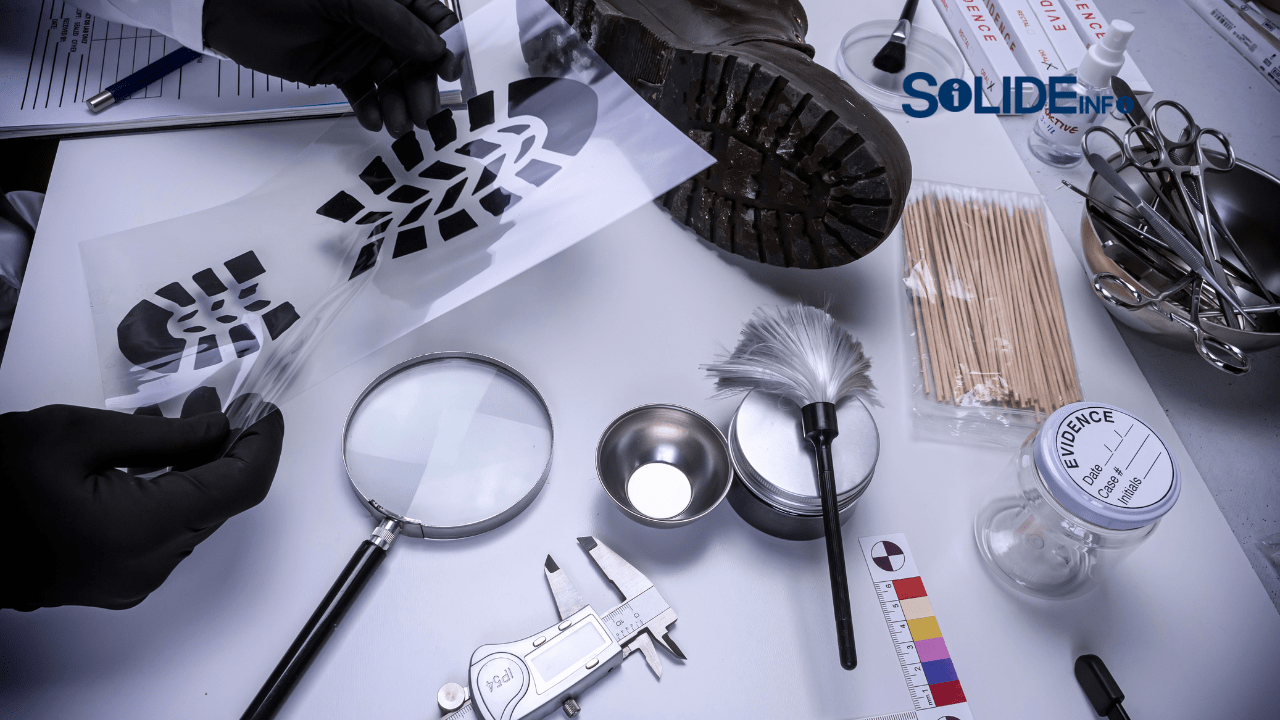Your Guide to a Forensic Science Career: Degrees, Majors, and Top Programs

Ever binge-watched a crime show and thought, “I could do that”? Well, if you have a knack for problem-solving, an eagle eye for detail, and a passion for justice, a career in forensic science might be a perfect fit. It’s a field that’s both fascinating and in high demand, blending science with investigative work to solve crimes. But unlike in the movies, becoming a forensic scientist takes more than just a cool lab coat and a witty one-liner. It starts with a solid educational foundation. This article is your comprehensive guide to the world of forensic science programs and the academic paths that lead to a career in the field. We’ll walk you through the various forensic science degrees and help you understand what a forensic science major really entails. Plus, we’ll give you tips on how to find the perfect school for forensic science so you can start your journey on the right foot. From ballistics to DNA analysis, there’s a specialized path for every interest, and it all begins with choosing the right course of study.
What Does a Forensic Science Major Actually Involve?
“I picked a forensic science major because I loved chemistry, but wanted to use it to do something more meaningful than just work in a lab. It’s a challenging but super rewarding field.” — A student on a college application forum.
That student’s experience is a great example of what many people find so compelling about this line of work. A forensic science major isn’t just about crime scenes; it’s a deep dive into scientific principles with a legal twist. You’ll spend your time in labs, classrooms, and sometimes even mock crime scenes, learning how to apply disciplines like biology, chemistry, and physics to a criminal investigation. The curriculum is typically rigorous and includes core science classes, math, and specific forensic science courses. You’ll learn how to properly collect and preserve evidence, perform DNA analysis, study toxicology, and understand the legal standards required for presenting evidence in court. This blend of science and law is what makes a forensic science major unique and so valuable in the job market. It’s not just about getting the right answer; it’s about getting the right answer in a way that can stand up to a lawyer’s scrutiny.
The Different Areas of Specialization
The great thing about a forensic science major is that it’s not a one-size-fits-all degree. The field is highly specialized, and your academic path can be tailored to your specific interests. Some of the most popular specializations include:
- Forensic Chemistry: This is all about analyzing unknown substances found at a crime scene. A forensic chemist might analyze drug samples, fire accelerants, or explosives to help with a case.
- Forensic Biology/DNA: This is one of the most well-known fields, focusing on the analysis of biological evidence like blood, hair, and other bodily fluids to identify individuals.
- Digital Forensics: As we’ve discussed before, this is a rapidly growing field that deals with evidence found on computers and other digital devices. A major in this area might be called cyber forensics, and it’s a great option for those interested in cybersecurity.
- Forensic Anthropology: This is the study of human remains, often used to identify victims of a crime when only bones or decomposed remains are available.
Choosing a specialization early can help you select the best courses and gain practical experience through internships or research projects. If you’re interested in the digital side of things, you can read our article about a cyber forensics career on our blog. For more information on career paths that blend science and technology, our guides on AI and Deep Learning might also be of interest.
Finding the Right School for Forensic Science
Once you know what you want to study, the next step is finding the right school for forensic science. This is a critical decision, as the quality of the program can make a huge difference in your career prospects. The best programs are accredited by the Forensic Science Education Programs Accreditation Commission (FEPAC), which ensures the curriculum meets industry standards. An accredited program is often the first thing employers look for.
What to Look for in a Program
When you’re searching for a school for forensic science, you should look beyond just the name. Here are a few things to consider:
- Hands-on Labs and Technology: The best programs will have state-of-the-art lab facilities where you can get hands-on experience with the same equipment used in real crime labs. You want to learn on a gas chromatograph or a mass spectrometer, not just read about them.
- Internship Opportunities: Practical experience is invaluable. Look for programs that have strong relationships with local, state, or federal law enforcement agencies, or private forensic labs. An internship can give you a real taste of the job and help you build a professional network.
- Faculty Expertise: Check out the faculty. Are they former crime scene investigators, forensic scientists, or lab directors? Learning from people who have real-world experience is a huge plus.
- Specialization Options: Does the program offer a specialization in the field you’re most interested in? For example, if you want to get into digital forensics, make sure the program has a strong curriculum in that area.
A good school for forensic science will provide a blend of rigorous academics, hands-on experience, and professional networking opportunities that will prepare you for a successful career. For more information on what to look for in a program, you can consult a trusted external source like the American Academy of Forensic Sciences (AAFS).
Forensic Science Degrees: Bachelor’s, Master’s, and Beyond
The path to becoming a forensic scientist isn’t a one-and-done deal. There are several levels of education, and the one you choose depends on your career goals. Most entry-level positions require at least a bachelor’s degree, but many people go on to earn a master’s or even a Ph.D. to specialize further or to get into research.
Bachelor’s Degrees: Your Entry Point
The most common way to start is with a bachelor’s in forensic science. This four-year program provides the broad scientific foundation you need to work in a lab. However, you can also get into the field with a degree in a related science like chemistry or biology, as long as you take some extra forensic science coursework. For example, a student with a chemistry major who takes a few forensic degrees courses in crime scene analysis or trace evidence might be well-suited for a forensic chemist position.
Master’s Degrees: Specializing and Advancing
A master’s degree in forensic science is a great way to specialize and advance your career. A master’s program is often more focused on a particular area, like forensic DNA or digital forensics. Many of these programs are designed for people who already have a bachelor’s in a related science and want to transition into forensics. Having a master’s degree can also give you an edge in the job market and lead to higher-paying positions. This is also a good path for those interested in teaching or working in research.
Ph.D. Degrees: The Path to Research and Academia
A Ph.D. in forensic science is for those who want to get into research and development, or teach at the university level. A doctoral program will have a heavy focus on research and will prepare you to be an expert in a specific niche within the field. This level of education is not required for most jobs, but it is a great option if you have a passion for a specific area of forensic science and want to contribute to the field’s advancement.
No matter which path you choose, the key is to get a solid foundation in the core sciences and get as much hands-on experience as possible. For more insights on the different kinds of careers out there, you can explore our articles on various topics, including blockchain technology.
Getting a degree in a field like forensic science is a serious commitment. Many students are concerned about the financial burden of a college education. This is where creating a strong personal budgeting plan is essential. You can find out more about how to manage your finances and plan for your future on our blog, including tips on how to save money and find scholarships. Education is one of the best investments you can make in your future, and a solid financial plan can help you get there. You may also be interested in how other scientific fields like Deep Learning are being applied to forensics to analyze data and solve crimes more efficiently.
Ultimately, a career in forensic science is a rewarding journey for anyone who wants to use science to make a tangible difference in the world. By choosing the right forensic science major and finding a great school for forensic science, you’re setting yourself up for a career that’s both challenging and incredibly meaningful. The demand for qualified professionals in this field is only growing, so there’s never been a better time to get started. The variety of forensic degrees available means you can find a path that fits your specific interests and skills, whether you’re interested in the crime scene or the computer screen.
What’s the most exciting area of forensic science to you? Let us know in the comments below!




